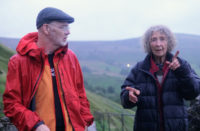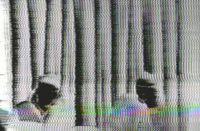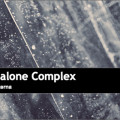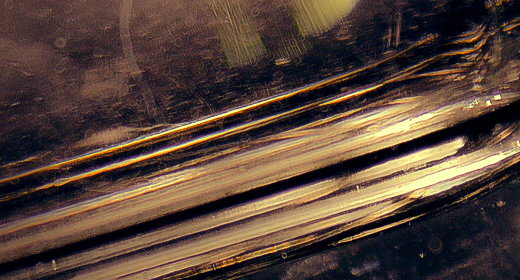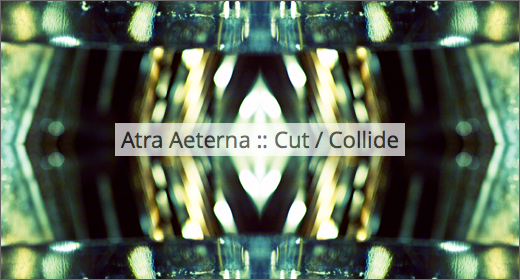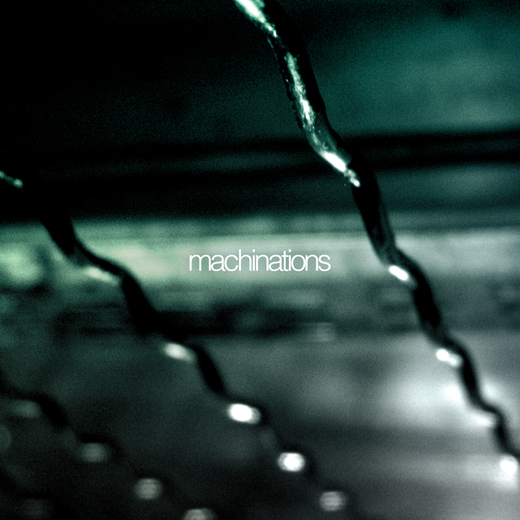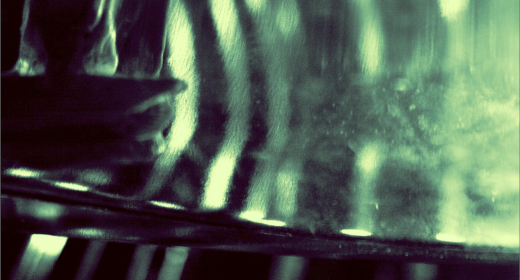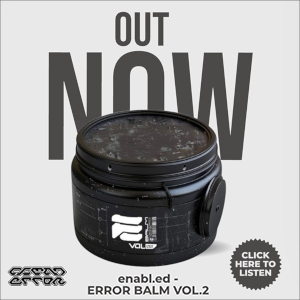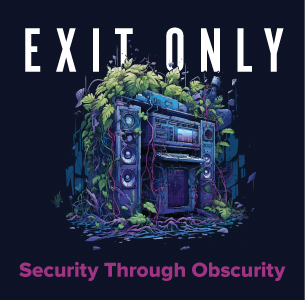Zack Mitchell (aka Atra Aeterna) replied to our Five questions and explains his musical origins, current projects and the methods he utilizes to break new ground.

Igloo :: When did Atra Aeterna start up and what was your inspiration?
Atra Aeterna :: In the winter of 2004 I came across an excellent website called OverClocked Remix, which is an online community of like-minded producers and fans of video game music, whose goal is to create and share modified reinterpretations of compositions from classic games. I was intrigued, and began to investigate into how the producers of these tracks went about their work. This led me to the discovery of the digital audio workstation (or DAW) which I use, Propellerhead Software’s Reason. For a very long time I had had the desire to become a musician, but lacked the patience required to become proficient at any specific instrument. With Reason however, that was no longer a problem, as I had always been very tenacious when it came to exploring new computer programs.
I had spent a vast amount of time in my youth playing video games, and the music associated with them was something that I always found fascinating, especially the way that the compositions helped to shape the atmosphere of the worlds being depicted on screen. It was the musical aspect of games like Chrono Trigger that cemented my emotional investment in their stories, to the point where to this day I can hear a composition like Yasunori Mitsuda’s Manoria Cathedral and still feel genuinely moved. That realization—that musical scores were a very important piece of the storytelling art, and could carry such emotional heft even when separated from their visual counterparts—was something that stuck with me. Since then, I have always attempted to create music that can stand on its own, but has a cinematic air to it that hopefully makes people imagine their own stories and visuals.
Igloo :: How do you envision your music to stand apart and where do you intend to take it?
AA :: When I first began experimenting with sound, I was very concerned with trying to mimic other artists, to the point where I would get frustrated when I came up with a piece of music that didn’t fit into my narrow minded view of what I was “supposed” to be creating. It’s an unhealthy mind state to be in as a musician, but it is one that I think is fairly common, particularly among those who are just starting out. The real formative period for my music came when I was in college, as producing began to become a primary focus of mine, and I was surrounded by people who were supportive of my creative endeavors. A few of my friends at the time gave me some sound advice; that it’s far better to simply produce what feels right and accept it for what it is, than to spend a massive amount of time and energy trying to force yourself to be something you’re not.
I would hope that time has made me more patient and a little bit wiser, and these days I usually attempt to go into a new track with no preconceived notions of what should come out of it, and instead start with a single note or chord, building upon it until everything begins to sound appealing to me. It can be a little bit of a trial and error process sometimes, but the end result is that the product sounds very much like my own work. That said, it can also be a lot of fun to take a track you really enjoy, by an artist whose work you greatly respect, and try to reverse-engineer part of it. It is an excellent exercise, and one of the best ways to learn new techniques.
With regards towards the future, I would like to experiment a bit more. I have been working on a bit of new material since the release of Machinations, and I am trying to incorporate more programmed drum sequences, and more lively basslines. Also, working within a DAW like Reason, almost everything is MIDI based, so the prospect of toying with raw audio, modifying and slicing it up, is another thing that interests me greatly.
Igloo :: What are some of the challenges (if any) of producing and releasing your music in this era of digital versus physical media models?
AA :: In this new digital age, becoming a musician is the easiest it’s ever been. Programs like Reason are just a click and a download away, and learning how to use them is easy, providing you have the patience to sift through the thousands of free tutorials on various forums and YouTube. It’s really incredible, because it means that more and more people are finding their creative voices; ordinary people who don’t have access to professional studios, or don’t know the first thing about live recording. I’m very thankful for that, because it’s how I got my start.
I think that most artists, regardless of their medium, draw upon the environment around them for their inspiration, and my own experience is no different. In a world like today’s, where everything is connected and all aspects of art and culture are available instantly, it’s actually become very difficult to not be inspired by something on a day to day basis.
The other side of course, is that the independent digital music market is now over saturated with artists; due to the ease of setting up a page on Bandcamp or Soundcloud the most difficult part is no longer making your music available, it’s making sure that the listeners who will appreciate it the most can find it amidst the ever growing ocean of independently released albums. With the continued evolution of the internet as a promotional and distribution tool, a physical release has gone from being a necessity to an option, and there are a wide selection of websites to choose from that offer short run CD manufacturing geared towards independent artists, who have much smaller budgets than a typical record label.
There will always be a portion of the market that prefers physical media, whether it be CDs or LPs. Some people, myself included, enjoy that tangible aspect of opening a new record, putting it on and listening to it while going through the liner notes and photos. However, it is still important to acknowledge that most people who stumble across a new band or artist for the first time will be doing so on the internet, and in this age of instant gratification their first action will most likely be to go to Google or iTunes, not drive to the nearest record store.
With that in mind, I think the biggest challenge has become cultivating an online presence as an artist; through advertising, fan interaction and use of social media, you must attempt to simultaneously reach new listeners while building a rapport with those who are already on board. It can be very difficult at times to find a balance between doing all of that and making the music itself. However it can also be extremely rewarding, especially when you start hearing positive feedback from fans.
Igloo :: What is your motivation in keeping your project moving forward through this decade?
AA :: I think that most artists, regardless of their medium, draw upon the environment around them for their inspiration, and my own experience is no different. In a world like today’s, where everything is connected and all aspects of art and culture are available instantly, it’s actually become very difficult to not be inspired by something on a day to day basis. Cinema and other artists’ music are the most dominant influences on my work, and my tastes for both are fairly eclectic (something I suppose is related to my ADHD), but I’ll refrain from starting a list of favorites here because that almost always turns into a lengthy affair.
I will say that some other mediums have provided just as much inspiration at times; from video games (Dead Space 2, Super Metroid), to TV shows (Breaking Bad, The Wire), and last but not least, graphic novels (The Sandman, The Watchmen). For me, as long as that inspiration is there, and people continue to make art that contributes to it, I think I’ll be able to stay motivated to take what I see and hear of the world, and process it into a creative voice of my own.
Igloo :: Tell us more about how you deliver your “sound” to listeners and fans. Distribution, campaigns, live shows, word of mouth etc.
AA :: My presence as a musician is very… “digital”. I have never played a live show, and I must admit it is not something that really interests me much. Personally, my music is not the kind of stuff I envision people wanting to listen to live, at any venue, much less a crowded club. I far prefer to sit at home and take in records at my own pace, and I guess I’ve always just assumed that most of my listeners feel the same way. I might be wrong, but the fact that I also sometimes suffer from social anxiety means it’s not likely to happen regardless.
In terms of communicating with fans, it’s something I definitely enjoy, and the majority of my social media interaction is done through the Atra Aeterna Facebook page. It can be a lot of fun, hearing feedback from people, and I’m always amazed at the similarities between my own artistic interests and those of fans. I’ve had people leave messages of encouragement on the wall in the past, and those posts have quickly turned into full blown conversations about the glory days of SNES RPGs, or recommendations of good post-rock bands to check out. It’s just very rewarding to know that a lot of them come from the same background, enjoy the same movies and music—that they get what I’m trying to do, and in that respect, I’ve been very lucky.
For more information about Atra Aeterna, visit atraaeterna.com. Buy music from Atra Aeterna, iTunes or Amazon.








